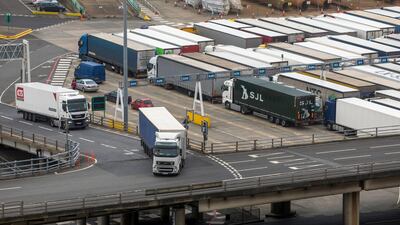More small companies are likely to go out of business because of Brexit, a former head of the British Government Economic Service has told the new UK Trade and Business Commission.
Vicky Pryce told the commission that “small businesses are particularly affected” by red tape and logistics problems caused by Britain leaving the EU, and they cannot afford the lawyers and advisers used by big companies.
The cross-party group of ministers and experts was launched on Monday to examine trading relations with the EU and new deals with the rest of the world.
It was formed after the parliamentary committee on the future relationship with the EU was disbanded at the start of the year, and is supported by formerly anti-Brexit group Best for Britain.
While the UK government is stressing its ambitions for a “Global Britain” to expand trade links with the rest of the world, it probably will not be enough to make up for what small companies have lost after Brexit, said Thomas Sampson, associate professor at the London School of Economics.
“Trying to find a route for small firms to replace lost business with the EU with the rest of the world is going to be very difficult,” Mr Sampson said.
Even if London were able to agree on a trade accord with Washington, which insiders believe to be unlikely until at least 2023, Ms Pryce said Britain already sold a lot to the US, minimising possible economic benefits.
And any deal would involve painful political compromises for the UK.
International Trade Secretary Liz Truss has pledged not to compromise food standards in a deal with Washington.
Ms Truss gave an example of providing the US with access to the British market for products such as chlorinated chicken, which consumer groups find objectionable.
“We would have to do something quite major in relation to our standards, environmental and others” to reach a deal with the US, she said.
Ms Truss said the UK might be missing out on deals Brussels struck with the rest of the world, such as the EU-China investment agreement.
Labour politician Hilary Benn, co-convener of the commission, said it would focus on “the future and not the past, with a focus on practical ways to improve trade policy and help businesses bounce back from the pandemic and EU exit".


